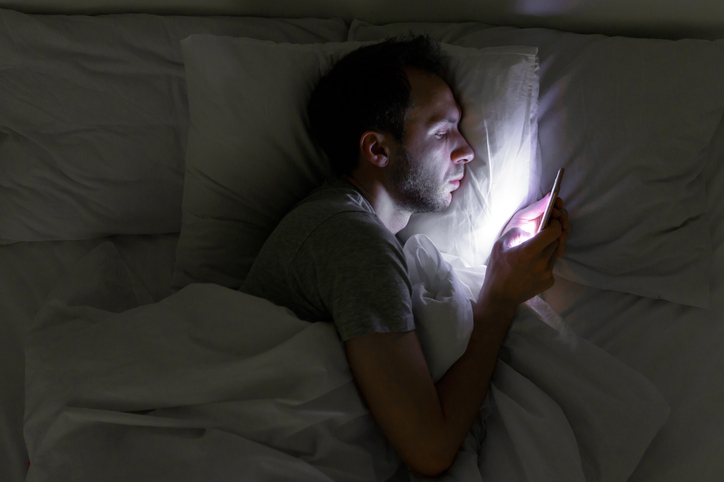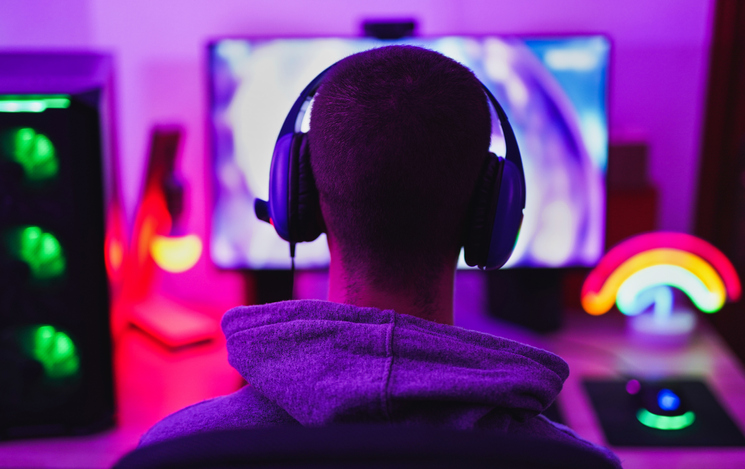Modern society brings its own set of challenges to the health and wellbeing of individuals today. Technology plays a significant role in both the personal and professional spheres, influencing the way people communicate, work, and even relax. While there are many advantages to technology, excessive screen time can disrupt the healthy balance of activities in our daily lives (Capanna-Hodge, 2021). From neurological to social, the effects of screen time are wide-ranging and can shape the habits of both children and adults (Carter, 2020).
As a professional life coach, you are responsible for promoting the personal and professional growth of your clients, and implementing powerful strategies for change in their lives. In many cases, this may mean examining their relationship with technology and the negative impact it has. For those looking to build a rewarding career, read on to learn how you can assist clients in navigating the digital age.
A Look at Screen Addiction
Technology now influences countless areas of our lives. From connecting with friends to consuming media to networking for job opportunities, our phones and computers are indispensable tools. Unfortunately, the effects of technology go well beyond its practical uses.
Since the emergence of smartphones, research shows an increase in the number of people struggling with an addiction to technology (Smith, 2021). Many people feel an overwhelming need to be tapped into social media, which often leads to a fear of missing out (Smith, 2021).
Additionally, digital media plays an active role in shaping the brain’s reward system as well as its perception of reality (Harvard Medical School, 2019). In fact, technology addiction impacts the same area of the brain as drugs and alcohol (Carter, 2020). In that sense, it is characterized by an inability to control, regulate, or limit one’s behaviour (Smith, 2021). Technology addiction can include an addiction to video games, social networking, and surfing the web. Those in a professional life coach career should note these areas of addiction and help clients to redirect their energy to alternative outlets.
The Negative Effects of Excessive Screen Time
Excessive screen time has been associated with many negative behaviours and habits. In young people, social media usage has been shown to have a significant impact on their social, emotional, cognitive, and physical development (Capanna-Hodge, 2021). When it comes to the physical effects of technology addiction, sleep deprivation is a common complaint. Screen time has a direct impact on the amount of sleep one gets, since the blue light emitted from digital screens interferes with the body’s production of the sleep hormone melatonin (Active Health, 2021).
In terms of social well-being, technology addiction has also been linked to decreased communication skills and social interactions (Capanna-Hodge, 2021). As young people spend more time online, they have fewer interactions in the real world. This in turn limits their capacity to make meaningful human connections (Capanna-Hodge, 2021). Professionals with life coach training should work to promote the health and wellbeing of their clients in the numerous spheres of life – physical, emotional, and social. In many cases, this means helping clients to mitigate the limiting effects of excessive screen time.
How You Can Assist Clients in Your Life Coach Career
As a life coach, you should seek to build habits in your clients that will enact positive change in their lives. When it comes to excessive screen time, this may involve setting the right limits or encouraging alternative, more beneficial activities. Some healthy practices include sleeping without a phone nearby, walking without headphones on, or eating meals away from the television (Carter, 2020). Clients may find it helpful to log how much time they spend on electronic devices and schedule social or physical activities to replace some of that time (Carter, 2020). By understanding the changes your client wants to implement, you can develop tailored strategies to help them achieve those results.
Are you ready to become a certified life coach?
Contact Rhodes Wellness College today!
Works Cited:
Active Health (2021). What are the negative side effects of too much screen time? Retrieved from https://www.activehealth.sg/read/screen-time/what-are-the-negative-side-effects-of-too-much-screen-time
Carter, L. (2020). Why Too Much Screen Time is Bad for Your Health. Retrieved from https://spencerinstitute.com/why-too-much-screen-time-is-bad-for-your-health/
Capanna-Hodge, R. (2021). The Effects of Screen Time on the Brain and Body. Retrieved from https://drroseann.com/effects-of-screen-time-on-brain-and-body/
Harvard Medical School (2019). Screen Time and the Brain. Retrieved from https://hms.harvard.edu/news-events/publications-archive/brain/screen-time-brain
Smith, J. (2021). Technology Addiction. Retrieved from https://www.sandstonecare.com/resources/substance-abuse/technology-addiction











